Film Name:馬戲之王 / The Greatest Showman
Strangely enough, I grew up watching Hugh Jackman play Wolverine, so I should be perfectly accustomed to his “Uncle Wolverine” persona—yet when I learned he started out as a renowned Australian opera singer, I subconsciously felt that singing “The Singer” was his true self, not the muscular Wolverine.
For instance, in Night at the Museum 3, I found Hugh’s cameo “playing himself” far more entertaining than any “Wolverine” jokes.
After shedding the Wolverine mantle, Hugh finally found another role that truly suits him following Jean Valjean: P.T. Barnum.

To be honest, “The Greatest Showman” isn’t really a great movie, but that doesn’t stop me from loving it.
[Friendly reminder: The following contains spoilers.]
First, the story. Not long after the opening, we see the grown Barnum whisking away Charity without a hint of resistance from her father (perhaps he’d already tried to stop them unsuccessfully). He merely utters a couple of sour remarks, and I realize the film will take a minimalist approach to its plot. Yet I still underestimated The Greatest Showman: its narrative is so simple it follows a single curve, so thin it could be written on a single sheet of paper.
The “musical genre” is no excuse for a flimsy story. Without going too far back, last year’s “La La Land” surpassed “The Greatest Showman” by leaps and bounds in plot complexity and character depth.
The film’s narrative arc can be summarized as: flat start → minor rise → minor fall → rise → fall → major rise → major fall → final rise. There are no branches or layers whatsoever.
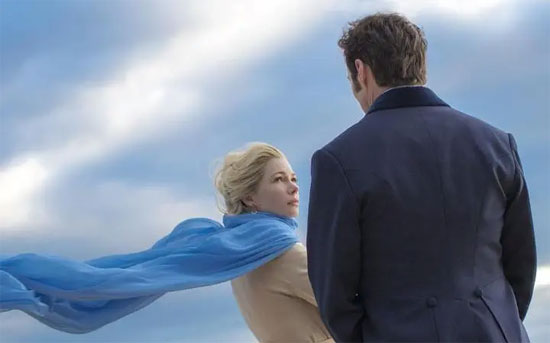
Simplicity isn’t inherently flawed, but such back-to-basics narratives require standout characters and other exceptional supporting elements to truly shine. “The Greatest Showman” clearly lacks this capital.
Take Barnum and his wife Charity’s tumultuous romance—it unfolds with clockwork precision, switching on and off at will. Despite their obvious chemistry, the formulaic execution fails to spark any genuine connection.
A similar issue arises when Barnum recruits Philip Currie. We know Philip will agree, but the resolution feels far too abrupt…
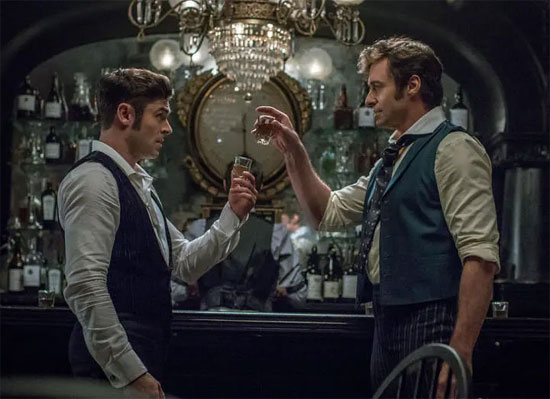
In truth, this “wishful thinking” approach to plot progression permeates the entire film. For instance, after a brief display of affection and a few conditions, Jenny Lind cheerfully agrees to perform in New York.
Seeing Zac Efron return to a musical delighted me, but watching a romance with zero chemistry unfold was downright frustrating…
The film’s romantic subplots share the same flaw as its other major theme—”Face your inner self, live authentically.” Their symbolic weight far outweighs their actual portrayal. Without solid grounding, these arguments devolve into forced political correctness that only feels awkward.
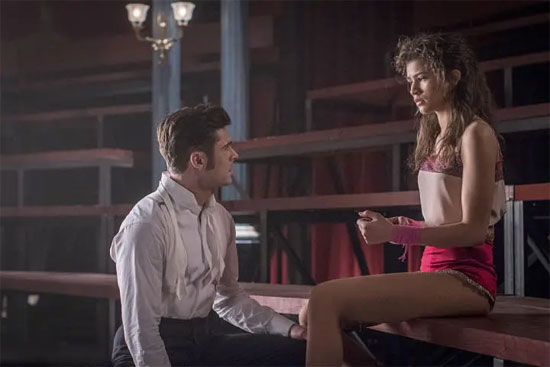
If a narrative film were made this way, it would likely become a collection of clichés and counter-clichés. Even if audiences didn’t call it trash, they certainly wouldn’t enjoy it—thankfully, The Greatest Showman is a musical.
Yet even the singing and dancing fall short of expectations. Despite assembling a cast of talented vocalists, the film lacks weighty, soulful solos. The choruses, while competent, suffer from pop music’s inherent limitations—short, flat, and fast rhythms—making the performances feel more like upbeat music videos. As for the dance sequences, beyond the initial spectacle, few truly memorable moments linger.
Strip away the glossy veneer, and “The Greatest Showman” reveals a strikingly hollow and superficial core.
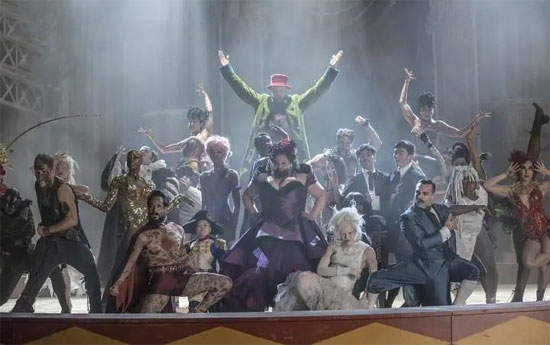
Interestingly, while this film fell flat among professional critics and reviewers, it rose to prominence in audience word-of-mouth.
For me, it’s the same. Despite its many flaws, I still adore The Greatest Showman. The very reason I love it is that hazy filter that obscures the film’s imperfections.
Don’t forget the film is also labeled as a “biopic.” The real-life Barnum was a controversial figure—his promotional tactics and marketing schemes made him seem like a braggart and a con artist… Yet the film downplays any potential negative aspects of Barnum, instead portraying him as a pure visionary and master entertainer.
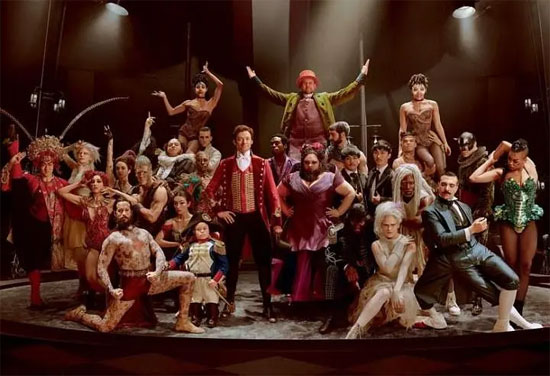
This deliberately directional adaptation perfectly aligns with The Greatest Showman’s tone and spirit—only someone with Barnum’s “funny soul” could gather such a troupe of “freaks and oddities.”
The boundless optimism and spirit of entertainment are what moved me most. The emotional contagion they unleash can even turn rotten things into magic.
All 11 songs were composed by Benj Pasek and Justin Paul, the lyricists behind “La La Land.” Set in the mid-19th century, the film features contemporary pop-style songs—a choice that could have been a liability. Yet the composers insisted it perfectly captured Barnum’s character: “He was unbound by the constraints of his era, always striving to create something new.”
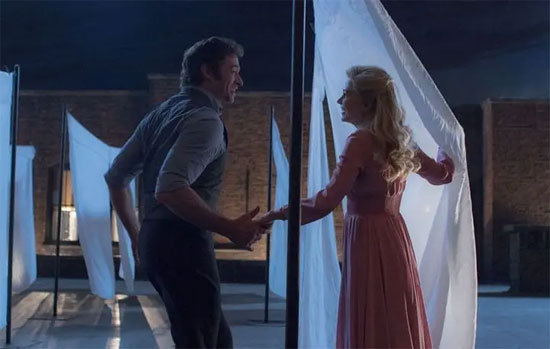
Barnum’s eccentricity and wild imagination permeate the entire film.
He can amuse a prim young lady with his crude imitations, venture into abandoned old houses for adventure, shower Charlotte with unwavering romance and passion, He dreamed of flying airplanes across the American continent, presented centuries-old light and shadow as a birthday gift for his daughter, pursued those extraordinary individuals shunned by the masses, and persisted in his pursuit of the bizarre and the clamor amidst scorn and defamation…
Barnum forever pursued the unknown and the wondrous in this world, never tiring of encountering strange people and extraordinary events he’d never seen before, then adorning his deep affection with fantasy and joy.
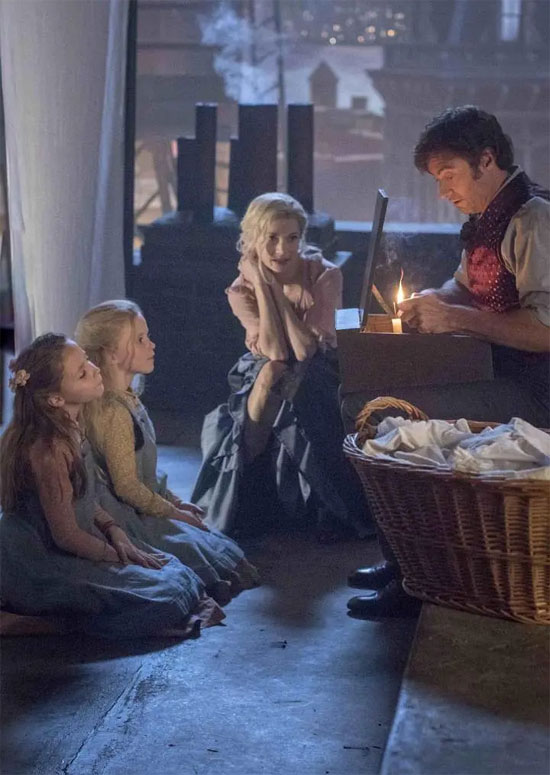
That’s precisely why I adore Hugh Jackman’s relentless smiling, singing, dancing, and striving in The Greatest Showman—especially the film’s first third. During that stretch, Barnum never knew fatigue or discouragement, constantly racking his brains to uncover unheard-of, unseen “spectacles” and imbue them with miraculous significance.
This spirit is conveyed through catchy, lively pop songs. It may be crude and superficial, much like Barnum’s “sensationalist” circus acts, but aren’t we all spectators who find joy in such extravagant performances? Even if our reflections afterward might differ… at least in this moment, our laughter and satisfaction are genuine.
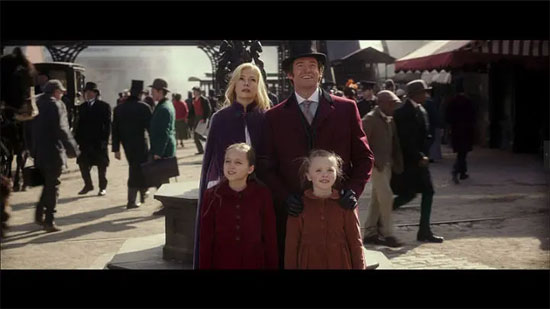
May we forever remain people who find joy—or at the very least, carry that spark of delight within us. For ourselves, and for those around us.
Please specify:Anime Phone Cases » The Greatest Showman 馬戲之王 2017 Film Review: Always be a person who cherishes joy.